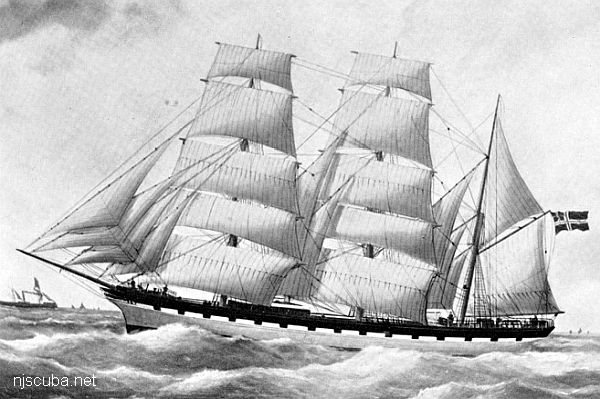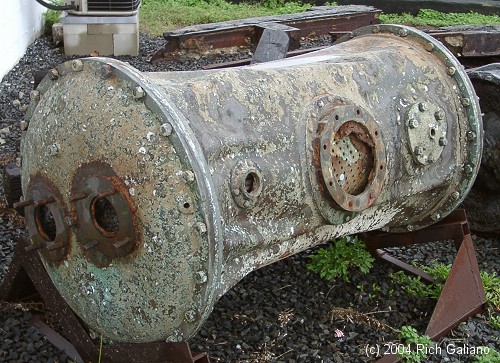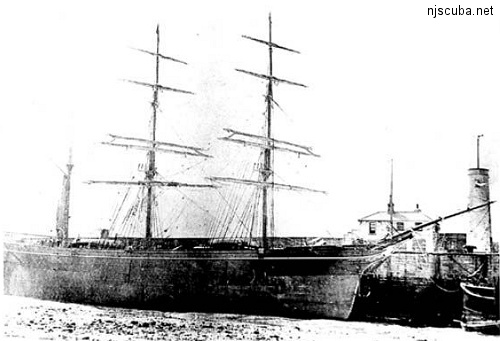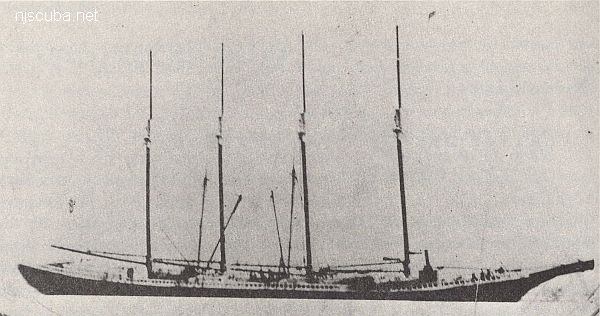Cecilia M. Dunlap

- Type:
- shipwreck, schooner barge ( originally a bark )
- Built:
- 1876 as Parknook
- Specs:
- ( 199 x 32 ft ) 793 tons
- Sunk:
- Saturday September 12, 1931
foundered - GPS:
- 40°25.374' -73°52.828' (AWOIS 2013)
- Depth:
- 60 ft
The Parknook was an iron barque built by the Whitehaven Shipbuilding Company at Whitehaven in June 1876. She was owned by David Borrowdale of Whitehaven, and her first voyage was from Whitehaven to San Francisco with a coal cargo, under the command of Capt. Richard Thompson. In 1887 the Parknook carried emigrants to Australia.
The Parknook was sold to Norwegian owners by 1898, and by 1927 was registered at New York, renamed Cecilia M. Dunlap. She entered the coastal trade on the Atlantic seaboard and subsequently was converted to a schooner barge. She foundered on the 12th September 1931 in 60 feet of water during heavy seas, whilst under tow from Pennsylvania to New Jersey with about 10,000 barrels of oil as cargo.

The collapsed condition of this unit is due to either relatively cold ocean water coming into contact with the unit still hot from operation, or from the demolition process when explosives were used to clear the wreck, eliminating it as a navigational hazard.

AWOIS 8071
FE330SS/89--OPR-C147-HE-89; CONTACT 1 FROM SURVEY H-10284/88; DIVERS INVESTIGATION FOUND A LARGE MASS OF WOOD AND STEEL WRECKAGE OF UNDETERMINED TYPE; WRECKAGE WAS BADLY DETERIORATED AND ROSE TO ABOUT 10FT OFF THE BOTTOM; VISIBILLITY WAS VERY GOOD AND THE DIVERS WERE CONFIDENT THAT THE MEASUREMENT WAS MADE ON THE HIGHEST POINT; 52 FT DIVER LEADLINE LEAST DEPTH; LAT 40-22-20.93N, LONG 73-55-07.12W (NAD83);


Questions or Inquiries?
Just want to say Hello? Sign the .